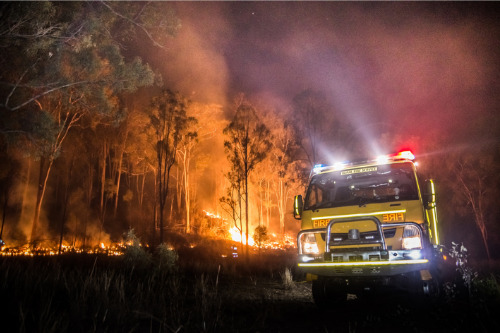

If the COVID-19 pandemic has taught businesses anything, it’s that preparation for interruption events is critical. Businesses with a tried and tested remote operating plan and the technology infrastructure to support remote work typically fared better than those that didn’t – at least in the early days of the pandemic. There are lessons that can be learned from that in tackling the ever-growing challenge of weather disasters across Canada.
Disaster restoration services provider, First OnSite, recently conducted a Business Preparedness Survey ahead of the fifth anniversary of the Fort McMurray wildfire, which remains the costliest disaster in Canadian history, with estimated damages of around CA$9.9 billion. The survey looked at how many businesses have been interrupted by wildfire over the past five years, and how prepared businesses are to respond to wildfire events and similar natural disasters.
The survey results showed that Alberta led the country in terms of wildfire exposure, with one-in-five businesses interrupted by wildfires (18%), which is three times the national average of 6%. British Columbia, which has also seen large-scale wildfires in recent years, came next at 10% of businesses being interrupted by wildfires. Meanwhile, 31% of Alberta businesses expressed concern about future wildfires, with BC businesses following closely behind at 28%. Both western provinces were significantly higher than the national number of 17%.
First OnSite’s survey also asked: ‘If a disaster were to hit your community, how would your business support its workers?’ Over three-quarters of Alberta businesses (76%) said they would provide flexibility with work to allow employees to deal with their home and family, which is higher than the national number of 70%. Furthermore, 71% of Alberta businesses said they would provide constant open lines of communication and continuous updates, which again was higher than the national number of 63%.
From a national perspective, one-in-five businesses said they would offer bonuses, overtime pay and/or incentives for working through a disaster. More than half of businesses (55%) said they would connect employees with outside help and support services after a catastrophic event, such as mental health, community or government resources. However, there are still 10% of businesses that have not yet considered connecting employees with outside help or developed a plan to support its workers in the event of a disaster.
Read next: Warning for Canada over mega hurricane
“What we’ve seen through our Business Preparedness Survey is that more and more businesses are starting to think more seriously about preparedness, not just for wildfires but for natural disasters in general,” said Mandeville. “Preparedness is twofold. There are things to do with practice and procedure that businesses can prepare for, finding answers to questions like: how are you going to continue operating if staff are evacuated? Are your employees able to work from home or will you need to relocate them? Do they have the necessary equipment to be able to do their jobs from home or another location?
“And from a practical perspective regarding the actual facility, there are lots of fire smart things that can be done to buildings to mitigate the risk of wildfire, such as using fire resistant materials on the exterior, and using fire smart landscaping where trees and combustible materials like wood chips or mulch are kept far away from the building.”
Mandeville is not alone in preaching the benefits of preparedness for catastrophic events. Most insurers and brokers across Canada are delivering the same message: plan ahead and you’ll see the advantages when catastrophe strikes. The Insurance Bureau of Canada – the national industry association representing Canada’s private home, car and business insurers – regularly releases updates on disaster preparedness. The association advises businesses to prepare a written business continuity plan, which is reviewed, developed, and tested on a regular basis. The plan should cover elements like business-critical activities, leadership, employee training, and human resources.
Swiss Re Canada and the English Caribbean president and CEO Monica Ningen is another outspoken advocate for catastrophe preparedness. She said: “Countries are more or less vulnerable to natural disaster risk according to their level of preparedness and their ability to absorb losses. We must take the steps necessary to protect Canada against the impact of severe weather. Some are costly from a financial standpoint, and some would require a complete change of the way that we live our lives. But we can’t afford not to make these changes. Anything done to mitigate and adapt natural catastrophe risk is a step in the right direction to ease the elevating burden of the economic future.”
Insurance brokers can play an important role in improving disaster preparedness resilience, according to Mandeville, but they may need a little help from the carriers. He said: “At renewal or during an annual inspection, they could provide incentives – potentially driven all the way from the underwriters – around making buildings more resilient to extreme weather, and having better plans in place for business continuity. If a business puts the work in so that they can continue to operate if they’re evacuated, there could potentially be some cost savings for them in their insurance. It’s all well and good talking about risk management and feeling good about it, but if there’s no financial inventive attached to it, then it just doesn’t drive nearly as many companies to act as it would otherwise.”
